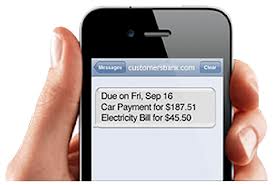
But as good as the theory of debt consolidation loans seems to be, proceed with caution. Debt consolidation loans don’t always do what you hope they will, and sometimes they can even make your situation a good deal worse.
How Debt Consolidation Loans Can Go Wrong
When people consider taking out a debt consolidation loan, they seldom give serious thought to the potential pitfalls that they have. There are number of ways that debt consolidation loans can go wrong, and here are just a few:
- Though they usually lower your overall monthly payments, they don’t reduce the amount of money that you owe
- By reducing your overall monthly payment, they often pave the way for you to take on additional debt
- If you don’t stop borrowing after you take a debt consolidation loan, the consolidation will have been absolutely pointless
- Debt consolidation loans can make debt easier to live with, and that does not create the kind of budget discipline that leads to an improved overall financial situation
- Debt consolidation can become a revolving arrangement, in which you do a consolidation loan, that’s followed by an even larger one, a larger ones still, in a process that often has no end
In short, debt consolidation loans can lead you on a one way road to ever higher amounts of debt.
The Cycle of Perpetual Debt
Point #4 above warrants special consideration, since it lies at the root of the cycle of perpetual debt a lot of people find themselves in. Many debtors look for ways to make their loans easier to live with. This may reduce budgetary stress in the household, but it doesn’t actually make your debts go away. In fact, if you become too efficient at debt consolidation, you run the very real risk of turning short-term debt into permanent debt.
How does that happen?
As debt consolidation loans become larger, they tend to carry longer repayment terms at higher monthly payments. At the extreme, debt consolidation eventually morphs into either a home equity line of credit or a cash-out refinance of your primary mortgage. At that point your debt consolidation become something close to a permanent obligation.
Once short-term debt has been converted to permanent debt, secured by your home, you’re debt slate is once again wiped clean. This can be an excellent strategy to get out of debt if you are fully committed to avoiding all forms of debt in the future. But for many people who do the ultimate form of debt consolidation – a mortgage on their homes – the path is simply cleared to accumulate more debt.
This entire arrangement – and it is not an uncommon one – puts you squarely on a path of perpetual debt.
How to Make Debt Consolidation Loans Work For You
Debt consolidation can actually work! By lowering your monthly payments, it does free-up your budget, and give you a host of options that you didn’t have before. But none of that will do any good unless your realize that getting out of debt requires sacrifice.
What kind of sacrifices are we talking about? Here are just a few examples:
1) Recognize that rearranging debt is not the same thing as paying it off –
A huge part of the success or failure of any debt consolidation loan is the way that you view it from the very start. You may need to change your thinking! If your primary purpose is simply to lower your monthly payments, the consolidation loan will probably only lead you deeper into debt. But if you see it as a more efficient way to payoff your debt it could be the very tool you need to help you get out of debt forever.
2) Eliminate the level of spending that got you into debt in the first place –
One of the biggest negatives with debt consolidation loans is that people who take them convince themselves that they don’t have to change their spending habits. That thinking is completely wrong, and a recipe for disaster. The entire reason that you go into debt in the first place is because you spend more money than you earn. That arrangement will have to change – you’ll have to learn to live beneath your means. That’s where the sacrifice come into play, but there is no way that you can be successful with a debt consolidation loan without it.
3) Swear off borrowing at least until the debt consolidation loan is paid off completely –
If you borrow more money shortly after taking a debt consolidation loan, you’re defeating the entire purpose of having the loan in the first place. Adding more debt on top of the debt you already have with a consolidation loan, will simply put you deeper into debt. Once you take a debt consolidation loan, you must avoid taking any new loans, at least until the debt consolidation loan is paid off in full.
4) Become a committed saver –
Probably the best way to avoid debt in the future is by becoming a saver. If you have money in the bank, you’ll be less likely to borrow money, particularly using credit cards. If you can start saving money while you are paying your debt consolidation loan, you’ll be able to really accelerate the process once the loan is paid in full. You can then direct what used to be the monthly debt consolidation payment into your savings.
In order for a debt consolidation loan to be completely effective, you have to view it as the first step in a very long-term process. The whole purpose of the debt consolidation loan is to clear the decks of your old debt, so that you will be able to go forward with a clean slate, and to develop an entirely new and more effective financial strategy.








